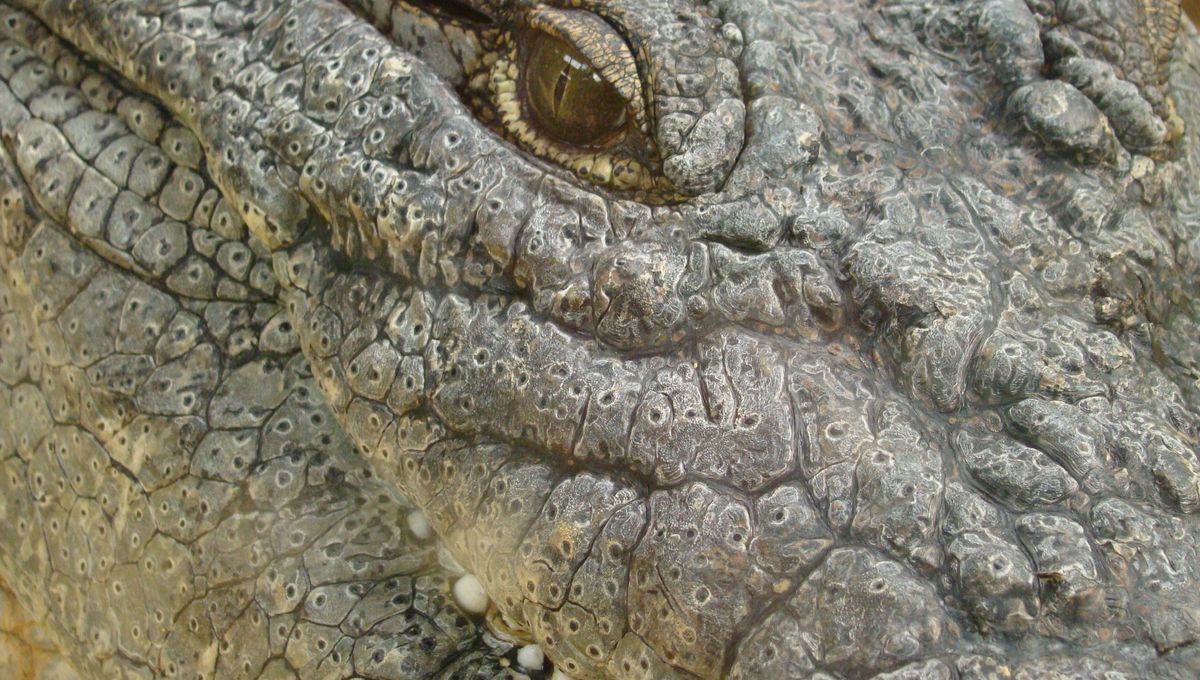
At the ripe estimated age of 123 years old, Henry is the oldest known crocodile in the world – and what a life he’s led. In the past few decades alone, the mature gentleman has fathered thousands upon thousands of offspring
With all those decades under his belt, Henry has amassed a gigantic size. The immensely hefty croc measures over 5 meters (16 foot 5 inches) from snout to tail and weighs 700 kilograms (1,543 pounds).
For context, the average Nile crocodile grows up to 4.5 meters (14.7 feet) and weighs around 410 kilograms (900 pounds). Despite their name, the species can be found throughout large parts of Africa.
Henry is believed to have been born around 1900 among the swamps of the Okavango Delta in Botswana, according to Crocworld Conservation Centre in South Africa, where he has lived since 1985.
Following his arrival at Crocworld, Henry has mated with at least 6 females, leading his keepers to estimate he’s fathered over 10,000 offspring in less than 40 years.
His birthday is celebrated on December 16, so he’s set to turn 124 later this year. However, since he was born in the wild, his precise date of birth is not known.
According to the British TV show Killer Crocs with Steve Backshall, Henry was captured in 1903 by an elephant catcher called Sir Henry, hence his name. However, this tale seems out of kilter with the information on Crocworld’s website, which claims Henry spent “most of his life” in the Okavango Delta.
Regardless of his backstory, Henry is certainly a remarkable beast. He shares his current habitat with another old croc called Colgate, with at an estimated 90 years of age.
It’s well-established that crocodiles are capable of reaching age of 100 years old in captivity. A few scientists have suggested that some crocodilians may exhibit some degree of negligible senescence — a term used to describe organisms that do not exhibit evidence of biological aging. They claim that crocs, theoretically, don’t die of “old age” and only succumb to external factors, like starvation, accidents, or disease.
It would be misleading to suggest that crocodiles are immortal in any sense, although it is all too evident they display extreme longevity, especially compared to other animals of their size. Many factors likely underpin their robustness, although some research has suggested it might have something to do with the unusual collection of microorganisms that inhabit their guts.
One study concludes: “Given the importance of gut microbiome on its’ host physiology, we postulate that the crocodile gut microbiome and/or its’ metabolites produce substances contributing to their ‘hardiness’ and longevity.”
Source Link: At 123 Years Old, Henry Is The World's Oldest Known Crocodile – And He's An Absolute Unit